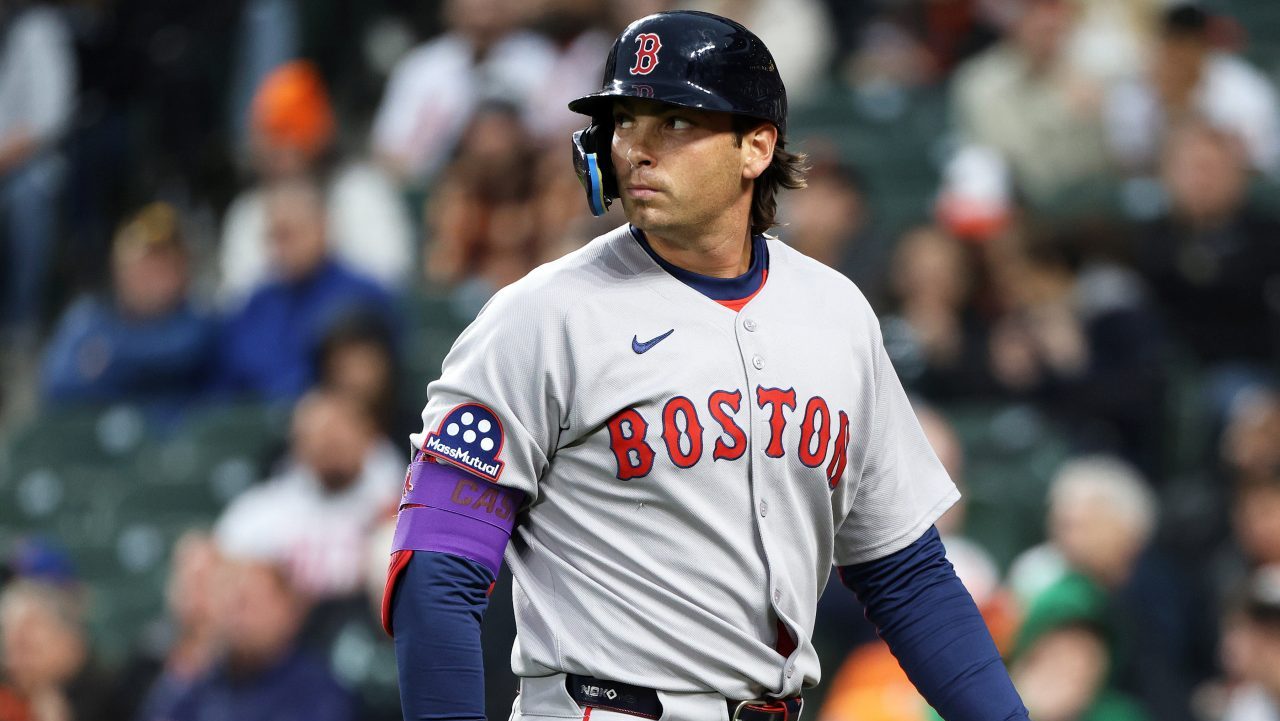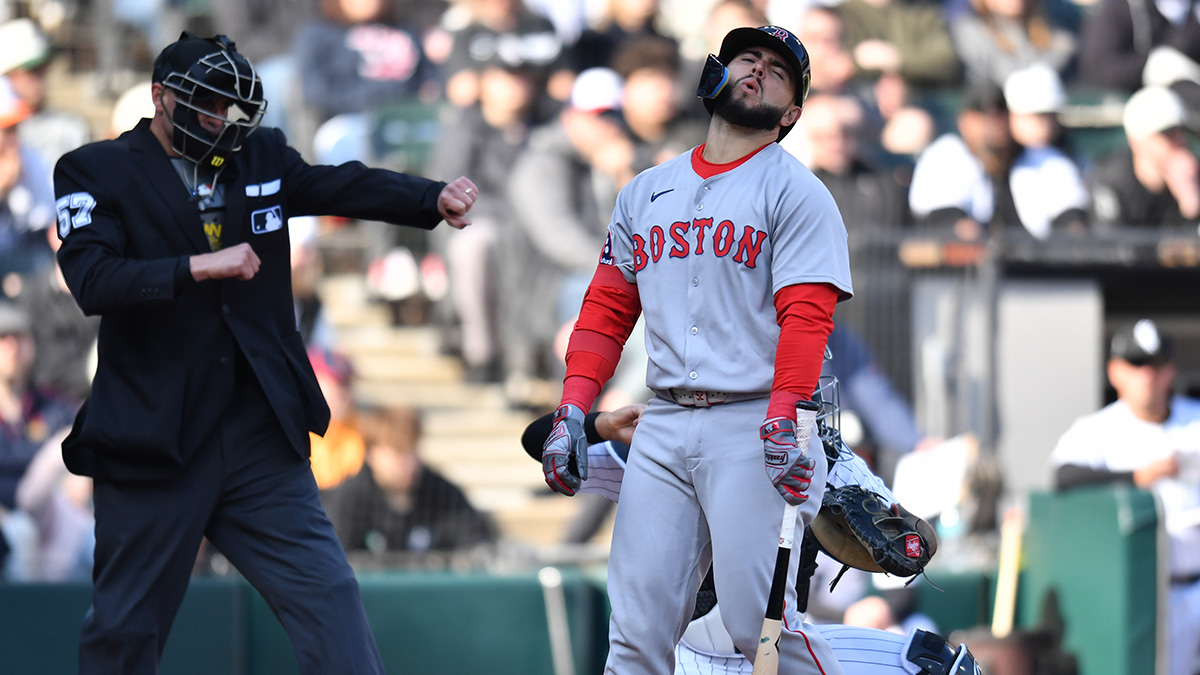A lot can happen in 386 days. A flower blooms, dies, and blooms again. Your adorable 12-year-old becomes a hulking teenager. A pandemic ruins the world.
Here's what hasn't happened in 386 days and counting -- John Henry answering a single question about the Red Sox.
When last we heard from the reclusive Red Sox owner, the world was a very different place. It was Feb. 17, 2020, and Henry reluctantly faced the cameras to answer for the Mookie Betts trade with all the enthusiasm of the aforementioned 12-year-old being ordered to write a thank-you note to Nana.
Stay in the game with the latest updates on your beloved Boston sports teams! Sign up here for our All Access Daily newsletter.
Believing that his public utterances had the effect of making situations worse -- at that point he still hadn't lived down his blithe proclamation that avoiding the luxury tax would play a prominent role in the post-Dave Dombrowski rebuild -- Henry read from a prepared statement for seven minutes.
Curran: It's time for Belichick, Kraft to step up to the mic
He admitted that he hated trading Betts, that the kid in him that grew up worshiping the Cardinals would've been heartbroken if they had traded Stan Musial. But he added that after being rebuffed three times in contract talks, he feared the Red Sox would lose Betts for nothing, and he couldn't let that happen. You may not have liked hearing it, but it's a defensible position.
What's indefensible is Henry's silence ever since.
Boston Red Sox
Find the latest Boston Red Sox news, highlights, analysis and more with NBC Sports Boston.
The 2020 campaign was an unmitigated disaster, and the offseason that followed didn't exactly electrify the fan base. Since hiring Chaim Bloom 18 months ago, Henry has doled out exactly two contracts worth more than $10 million: a two-year, $14 million deal for Enrique Hernandez, and a one-year $10 million flyer on right-hander Garrett Richards.
Is this a temporary situation while Bloom restocks the minors? Or has Henry decided that winning on a budget is the new way forward?
Those are just two of many questions we'd love to ask the principal Red Sox owner, but my understanding is he has no plans to make himself available this spring, having already eschewed the opportunity to conduct his annual picnic table interview remotely.
Hopefully that changes, because here are just a fraction of the questions fans would love to hear him answer.
Where do the Red Sox rank among your extensive list of global holdings? Are they still your priority or is it Liverpool? Do they remain your priority, or is it whatever you do with the reported $750 billion you're seeking from outside investors?
And speaking of that potential deal with RedBird Capital, what is its purpose? Is it to expand the Fenway Sports Group footprint beyond baseball and soccer, or could the Red Sox be sold?
This is the big one, because for the first time since Henry purchased the club two decades ago, we're unclear on his level of commitment to the product. While the Red Sox remain his most valuable property at roughly $3.4 billion, Liverpool is a $2 billion franchise in one of the most popular leagues in the world.
And while Henry was photographed at a Liverpool match vs. Manchester United last year, it's unclear if he attended a single Red Sox game last summer. Team president Sam Kennedy was dodgy when asked about it last fall, though in fairness, a pandemic was raging.
That said, trading Betts and not spending in 2020 was one thing, since teams like the Dodgers and Yankees have shown the value of resetting their luxury tax penalties. But after strait-jacketing Bloom for a second straight winter, it's fair to wonder how long this thriftiness will last. And that brings our next series of questions.
Why is remaining below the luxury tax threshold for a second straight season so important? Wasn't there an opportunity this winter to exploit a sluggish free agent market? When do you plan on spending again? Is it when David Price's and Dustin Pedroia's dead money is off the books? When a new CBA is ratified? When the farm system ranks in the top 10 again? Why are you operating like a small-market team when you have big-market resources? How long should fans expect to wait for an investment in the roster?
For most of Henry's ownership, we have never questioned his willingness to spend. And the Red Sox will still devote more than $200 million to salaries this year. But it's a bit of a mirage, since roughly a quarter of that is tied up in players who either aren't here (Price, Pedroia, Andrew Benintendi) or may not contribute much while recovering from Tommy John surgery (Chris Sale). It's also clear that if DH J.D. Martinez had opted out of his contract in either of the last two years, the Red Sox would've saved his roughly $20 million and waved goodbye.
The Red Sox want to build a sustainable model through the farm, but how long might that take? And is that a viable short-term approach when juxtaposed against the rest of the division?
The best teams of recent years have included a strong homegrown component, from the 2017 Astros to the 2018 Red Sox to the 2020 Dodgers. But the Red Sox are starting from the back of the pack. The Rays own the best farm system in baseball. The Blue Jays have recently graduated a number of potential stars to their roster, led by shortstop Bo Bichette, and they also opened their wallets for free agent outfielder George Springer. The Yankees farm system may rate middle of the pack, but they're still willing to spend on top-flight talent like ace Gerrit Cole.
If the Red Sox plan on waiting until the farm bears fruit, they won't contend for at least five years. When are they going to become more aggressive in free agency and/or on the trade market to acquire established talent?
Beyond the roster, there are more existential questions for the sport. What does the next CBA negotiation hold? Are owners preparing to lock out the players? Why does baseball have such a contentious relationship with its players when the NBA acts like a partnership and even the NFL just guaranteed another 10 years of labor peace?
From the disgraceful implementation of a 60-game season last year to save on salaries to equally questionable suggestions that the 2021 season should be delayed until everyone is vaccinated, the owners have been battening down the hatches for labor war for a while.
It's enough to make one question whether they even like their own sport. It's not the kind of query we'd normally direct at Henry, but when the man decides it's OK to go more than a year without addressing his fans, we're left to wonder.


